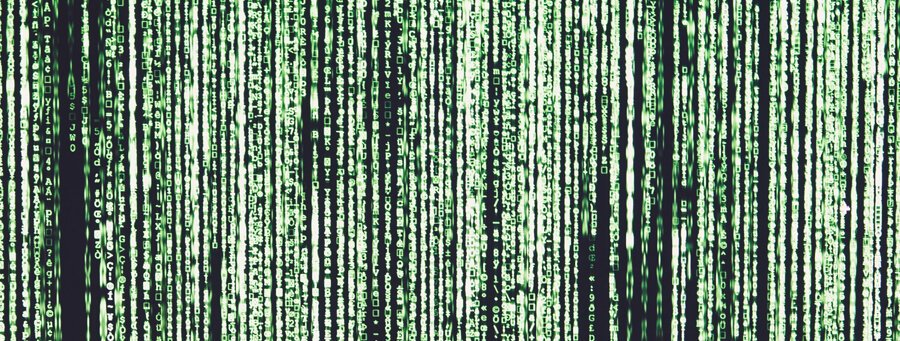6 min read
What Exactly is Digital Transformation?
…and does it really apply to me? Organizations often find themselves in the position of replacing or upgrading their Enterprise Resource...

In today's workplaces, having different generations can be both challenging and beneficial, especially when managing big changes like an ERP (Enterprise Resource Planning) modernization or transforming how a business operates. Understanding the unique perspectives and approaches to change among different age cohorts is essential for driving successful organizational evolution and maintaining a competitive advantage.
In our recent explorations of Change Management as Risk Management, we've delved into the intricacies of managing generational diversity in the workforce. Today, our focus turns to the Traditionalist generation—the seasoned veterans whose wealth of experience holds invaluable insights for steering change initiatives towards success.
Those born before 1945 have experienced significant changes in the global landscape, which have influenced their attitudes towards change and leadership. Despite expectations of resistance from younger generations, individuals from this demographic possess valuable wisdom that, if utilized properly, can expedite business growth and adaptation.
Here's an overview of essential traits that define the approach of individuals from older generations to change:
Acknowledging and harnessing the distinctive strengths of individuals from older generations is essential for optimizing their involvement in change initiatives. Here are practical approaches to facilitate their smooth incorporation into the transformation process:
1. Communicate Vision: Clear and consistent communication of the overarching vision for change is paramount. Ensure that organizational leaders articulate the purpose, goals, and anticipated outcomes of the transformation, instilling confidence, and alignment among the employees. Leaders should openly discuss both the potential benefits and challenges associated with the ERP modernization, managing expectations, and addressing any concerns or uncertainties that employees may have.
2. Acknowledge Past Contributions: Support the invaluable contributions of these employees to the organization's legacy and success. Acknowledging the past contributions of the employees is essential for fostering a sense of value, appreciation, and belonging as organizations undergo ERP modernization. By formally recognizing their achievements, sharing their stories, involving them in the transition process, facilitating mentorship opportunities, and creating platforms for reflection, leaders can honor the invaluable contributions of the older generations while also easing the transition towards a more innovative and forward-thinking future.
3. Provide Clarity and Roadmaps: Offer structured transition plans and roadmaps that outline the journey from the current state to the envisioned future. By illustrating the path forward and addressing uncertainties, you instill confidence and mitigate resistance among Traditionalist employees. The transition plan should be flexible and adaptable to accommodate changes or unforeseen challenges that may arise during the ERP modernization journey. Employees may feel more comfortable with a structured approach that allows for course corrections as needed, rather than a rigid plan that leaves little room for adjustment.
4. Integrate older generation employees into Project Teams: Engage them in cross-functional project teams, leveraging their deep institutional knowledge and historical perspective. By involving them in decision-making processes, you tap into their wealth of experience while fostering a culture of inclusivity and collaboration. This intergenerational collaboration not only enhances the effectiveness of project teams but also promotes a culture of continuous learning and development within the organization.
5. Learn from Past Failures in Business Process: Acknowledge past challenges and failures while emphasizing the importance of learning and growth. Encourage the employees to share their insights and experiences, leveraging lessons from previous transformations to inform current strategies and mitigate risks. Learning from past failures is essential for successful ERP modernization, and Traditionalist employees play a crucial role in this process.
6. Ensure Inclusivity and Engagement: Despite potential retirement plans, make concerted efforts to involve them in change initiatives. Organizations should provide training and development opportunities to support the employees in adapting to new technologies and ways of working. This may include offering workshops, seminars, or online courses designed to enhance their digital literacy skills and familiarity with ERP systems. By valuing their expertise and providing opportunities for active participation, you ensure that their insights are leveraged effectively, fostering a sense of belonging and purpose.
In our next installment, we'll shift our focus to the other end of the generational spectrum—Generation Z. Stay tuned for insights into engaging the digital-native workforce and bridging generational divides in the pursuit of organizational excellence.
Remember, successful change management hinges on understanding and leveraging the diverse perspectives and experiences of your workforce. By embracing the wisdom of Traditionalists and fostering a culture of collaboration and inclusivity, you pave the way for transformative success in your organization's journey towards ERP modernization and business transformation.
Stay tuned for our upcoming post on Generation Z, where we'll explore strategies for harnessing the potential of the next generation of change-makers. In the ever-evolving landscape of the modern workplace, a nuanced understanding of generational dynamics is key to driving meaningful and sustainable change.

6 min read
…and does it really apply to me? Organizations often find themselves in the position of replacing or upgrading their Enterprise Resource...

4 min read
In today's fast-paced business world, it's all about staying ahead of the game. That means embracing digital change to keep your company...
.png)
4 min read
ERP (Enterprise Resource Planning) discussions include Business Transformation at an increasing rate. Transformation may sound impressive – or...